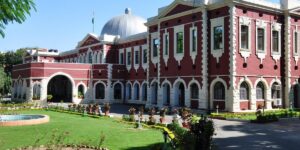
జార్ఖండ్ రాష్ట్రంలో న్యాయ వ్యవస్థలో ఇటీవల జరిగిన ప్రమోషన్లలో ఒక్క ఆదివాసీ జడ్జికి అవకాశం లభించలేదు. జిల్లా అదనపు జడ్జీలుగా ప్రమోషన్ లపై నియమితులైన 51 మంది జూనియర్ జడ్జీ ల్లో ఒక్క గిరిజన పేరు కూడా లేదనిజార్ఖండ్ జన అధికార్ మహాసభ ఆందోళన వ్యక్తం చేసింది. ఈ ఆఫర్ యొక్క మందిలో అధిక శాతం అగ్రకులాలకు చెందినవారే ఉండటం గమనార్హం. ఆదివాసీల కోసం ఏర్పడిన ప్రత్యేక రాష్ట్రమైన జార్ఖండ్ న్యాయస్థానాల్లో గిరిజనులకు అతి తక్కువ అవకాశాలు లభించడం దారుణం.
The government has not done enough to ensure that Adivasis are adequately represented, rights activists believe.
The Jharkhand Janadhikar Mahasabha, a coalition of civil society organisations, alleged on Saturday that not a single Adivasi judge found place in a recent round of judicial promotions in the state.
It posted the list of promotees for the post of additional district judge, which showed none of the 51 junior judges promoted was an Adivasi, and most belonged to dominant caste groups.
A lawyer associated with the coalition said on the condition of anonymity that Adivasis are very poorly-represented in the state judiciary. This is a serious problem in a state like Jharkhand, which was created to give Adivasis their due recognition and representation.
“The lower judiciary is a four-tier structure. Once you are appointed, you start off at the judicial magistrate or the junior division level. Then you are subsequently promoted to senior division, and then to additional district judge and eventually district judge. The current Jharkhand judiciary is such that you hardly find any adivasi judge at the senior division level and above.”
This, according to activist Elina Horo, also associated with the Mahasabha, reflects how passive the governments of Jharkhand have been in representing adivasis in judiciary. “Barring a few, there is a scarcity of judges in the state who understand tribal issues, their customsand their tradition. And this lack of knowledge reflects in their judgements too.”
Although the Mahasabha is lamenting the poor representation of Adivasis in mid- and senior-level judiciary of the state, the registrar-general of the high court, Ambuj Nath, thinks otherwise.
“All the promotions were done keeping in mind the rules and regulations. All the 51 were called for interviews based on their eligibility. There are many adivasi judges at the junior level but none of them fulfilled the criteria for this round of promotions for the post of additional district judge. We went by the rules.”
Nath explained that the promotions have to be done according to the norms set by the courts. He said that the reservation policy in direct judicial appointments in Jharkhand was implemented in 2007.
“Before that there were no tribal judge at any level in the state. They were recruited after 2007. Thus, at the moment, they do not fulfil the eligibility conditions for the post of additional district judge. When they meet the eligibility conditions in subsequent years, they too will be promoted,” Nath told The Wire.
Nath is not off the mark, as promotions in judiciary are done on the basis of several factors like seniority, performance and so on.
However, the Adivasi rights activists feel that the lack of representation can’t be reduced to a legal and administrative problem.
“The government, courts have to be sensitive enough to realise that there is a serious under-representation of adivasis judges in the judiciary. Because of this lack of Adivasi judges, you see that there is a total lack of sympathy for the demands raised by adivasi groups in courts. Lack of Adivasi representations means a violation of constitutional values of justice and equality,” Horo said.
(ద వైర్ సౌజన్యంతో)















